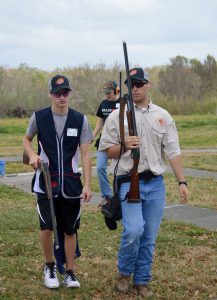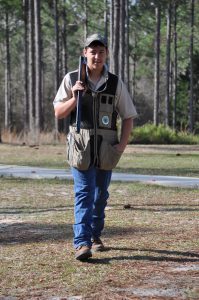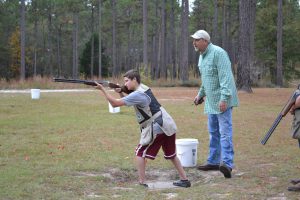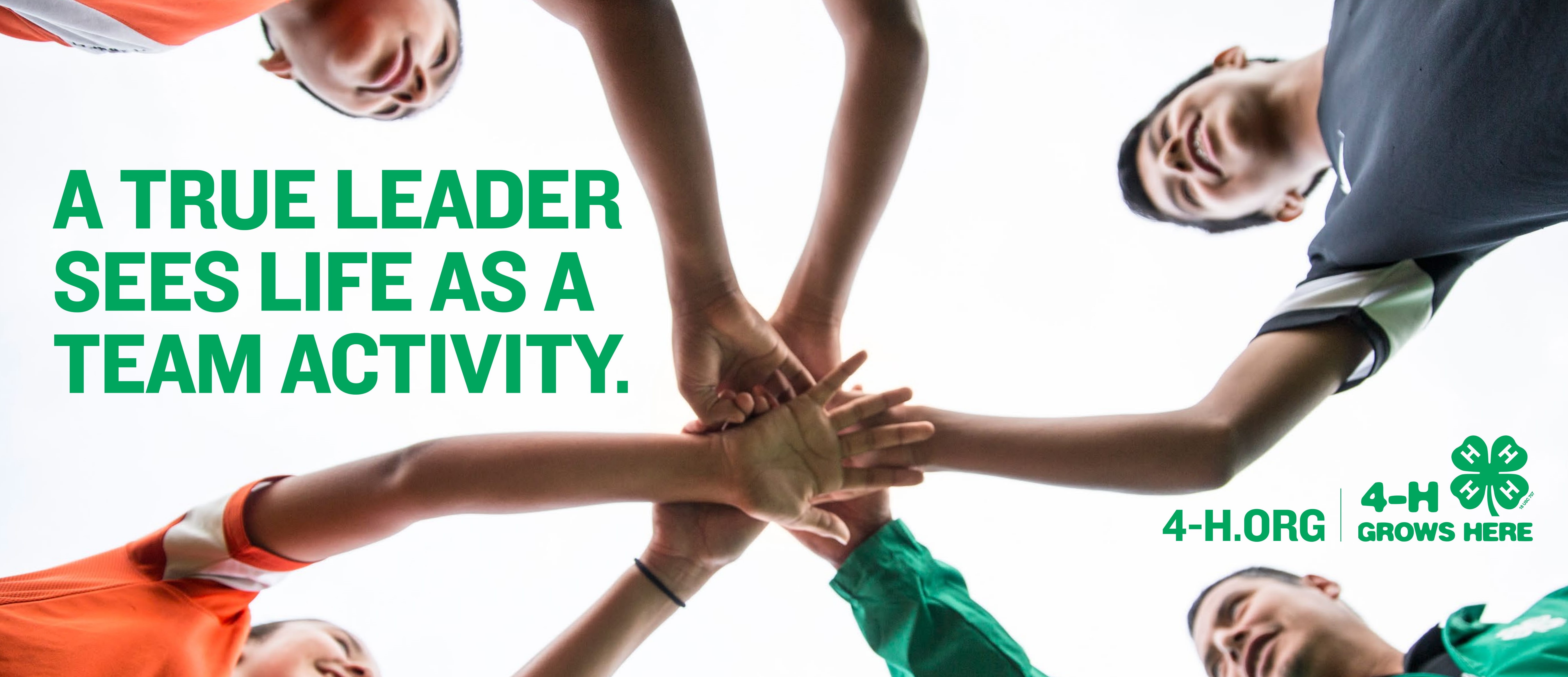Ages & Stages: Adapting 4-H Activities for Seniors
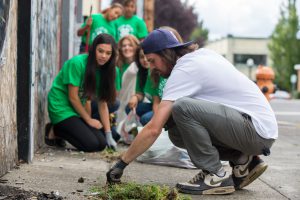 In a recent study, one of the top things 4-H volunteers are looking for are ideas for adapting activities to different age groups (Kent, 2022). Florida 4-H offers experiences for four different age groups: Cloverbuds (ages 5-7), Juniors (ages 8-10), Intermediates (ages 11-13), and Seniors (ages 14-18). One of the great things about 4-H is that the whole family can participate! This also means that 4-H volunteers often find themselves working with a variety of age groups. That might seem a little overwhelming, but this post series gives practical tips and strategies to make it less daunting. This week’s post is focused on adapting activities for intermediate-age 4-H members. In case you missed it, check out the previous couple of weeks’ posts to learn about cloverbuds, juniors, and intermediates.
In a recent study, one of the top things 4-H volunteers are looking for are ideas for adapting activities to different age groups (Kent, 2022). Florida 4-H offers experiences for four different age groups: Cloverbuds (ages 5-7), Juniors (ages 8-10), Intermediates (ages 11-13), and Seniors (ages 14-18). One of the great things about 4-H is that the whole family can participate! This also means that 4-H volunteers often find themselves working with a variety of age groups. That might seem a little overwhelming, but this post series gives practical tips and strategies to make it less daunting. This week’s post is focused on adapting activities for intermediate-age 4-H members. In case you missed it, check out the previous couple of weeks’ posts to learn about cloverbuds, juniors, and intermediates.
What are “Ages & Stages” and Why Does it Matter?
“Ages & stages” is a phrase commonly used in youth development that refers to the physical, social, emotional, and cognitive development of a young person. These categories of development are based on the work of researchers such as Piaget and Erickson. Understanding these categories help 4-H volunteers and professionals provide opportunities for youth to thrive through social and emotional learning and is a key part of the 4-H Thrive Model (Arnold & Gagnon, 2020). There are several benefits of selecting (or adapting) age-appropriate activities for youth:
- First, it makes learning fun! Fun is important; boring is bad.
- Youth are more engaged. When activities are not too challenging or too easy, they are in what’s called the “zone of proximal development,” or ZPD (Vygotsky, 1978). This is key to helping learners master new skills. ZPD refers to skills or knowledge that are too difficult for a youth to master on their own, but possible to master with guidance from a more knowledgeable person- like their 4-H volunteer!
- Youth can build on past learning experiences and create future opportunities to grow.
- When learning is fun and youth are engaged, youth stay involved in 4-H!
How to Use “Ages & Stages” to help Seniors Thrive
Social Development of 14-18 year-olds (how they act)
Youth who are 14-18 years old continue to establish a strong sense of self. They enjoy opportunities to work together as a team and develop strong friendships. They are also developing social networks and beginning to think more seriously about their future. 4-H is a great way for youth in this age group to prepare for life beyond high school by fine-tuning interview and communication skills and building a network of friends and adults that have the same interests as theirs.
| Typical social behaviors for 14-18-year olds include: | Strategies for supporting the social development of 14-18 -year olds |
|
|
Cognitive Development of 14-18-year-olds (how they think)
Youth that are 14-18 -years old can think logically and apply abstract reasoning, so problem-solving and critical thinking are a way to help youth in this age group learn. One of the best ways for youth in this age group to demonstrate mastery is by teaching younger youth. Many of our project areas have opportunities for older youth to serve in a “teens as teachers” role. Another way to engage older youth is in district and state leadership positions. Florida 4-H offers several opportunities for teens to plan district and statewide events through District Council and State Executive Board. Youth in this age group will also be interested in using their problem-solving and critical thinking skills to compete at the National levels in their project area.
| Typical learning behaviors for 14-18 -year olds include: | Strategies for Supporting Cognitive Development of 14-18-year olds: |
|
|
Throughout this series, we have been using examples from each of the three pillar programs in 4-H: Citizenship & Leadership, Science, and Healthy Living. These examples are meant to help parents and volunteers see how an activity can be adapted for each of the different age groups. For examples for other age groups, check out our previous posts about Cloverbuds, Juniors, and Intermediates.
- Citizenship & Leadership: For citizenship & leadership, we have been using the example of a 4-H club business meeting. Fourteen to 18 year olds are going to be more interested in learning about leadership roles beyond the club and county level- encourage them to run for a district or state office, or serve on a statewide planning committee for a 4-H event. Youth in this age group might also be interested in participating in the 4-H Citizenship Washington Focus to learn more about leadership and government at the national level.
- Science: For science, we have been using the 4-H entomology project as an example. Entomology is the study of insects. Youth that are 14-18 can help lead the entomology project at the county level and compete 4-H Insectathon contest to earn a college scholarship. Encourage youth to participate in a 4-H University track to learn more about careers in Entomology. Youth may also want to participate in the National 4-H Agriscience Summit.
- Healthy Living: For Healthy Living, we have been using the 4-H personal wellness project as an example. This project area helps youth learn about nutrition, physical fitness, and mental health. For seniors, they can teach a workshop on personal wellness at 4-H Teen Retreat, or apply for Community Pride funds to address a problem related to personal wellness. 4-H seniors would also be interested in attending the National 4-H Healthy Living Summit.
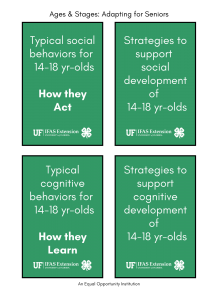 Using the “Ages & Stages” approach with youth reinforces the Essential Elements of 4-H: Belonging, Mastery, Independence, and Generosity. This is also key to helping youth thrive. However, each individual youth grows at their own pace and might not completely meet the general tendencies listed above. As volunteers and 4-H professionals, it is important to observe youth and meet them where they are physically sociality, and intellectually. Adapting activities on the fly gets easier with practice- download this set of flashcards for a quick reference guide. You can print them, cut them out, and punch them to fit on a lanyard as a handy teaching aid. Your local 4-H agent is always available to help and provide additional resources if you have questions.
Using the “Ages & Stages” approach with youth reinforces the Essential Elements of 4-H: Belonging, Mastery, Independence, and Generosity. This is also key to helping youth thrive. However, each individual youth grows at their own pace and might not completely meet the general tendencies listed above. As volunteers and 4-H professionals, it is important to observe youth and meet them where they are physically sociality, and intellectually. Adapting activities on the fly gets easier with practice- download this set of flashcards for a quick reference guide. You can print them, cut them out, and punch them to fit on a lanyard as a handy teaching aid. Your local 4-H agent is always available to help and provide additional resources if you have questions.
References:
- Arnold, M. E. & Gagnon, R. J. (2020). Positive youth development theory in practice: An update on the 4-H Thriving Model. Journal of Youth Development, 15(6), 1-23.
- Erikson, E. H. (1963). Childhood and Society (2nd Ed.). New York: Norton.
- Kent, H.C. (2022). Informal learning to support volunteer performance. [Unpublished doctoral dissertation]. Florida State University.
- Lee, F. and Go, C. (2002). Developmental stages. UC ANR 4-H Youth Development Program.
- Piaget, J. (1971). The theory of stages in cognitive development. In D. R. Green, M. P. Ford, & G. B. Flamer, Measurement and Piaget. McGraw-Hill.
- Pleskac, S. (2000). Educational design and delivery: Use of age-appropriate activities. VRKC fact sheet.
- Vygotsky, L. S. (1978). Mind in society: The development of higher psychological processes. Cambridge, MA: Harvard University Press.

